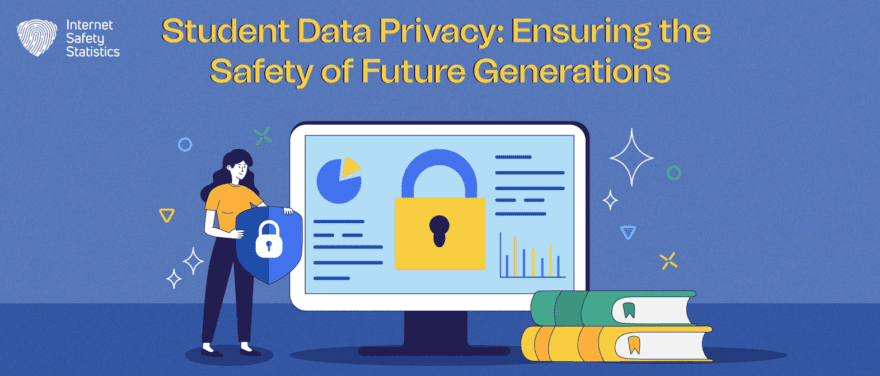
In the digital age, the sanctity of personal information has become a cornerstone of ethical discourse, particularly regarding the vulnerable demographic of students. Student data privacy concerns protecting personal information from misuse, unauthorised access, and other forms of exploitation. But what exactly is student data, and why has its protection become a societal imperative?
In this article, we answer these questions and learn how to protect student data, how students, parents and concerned establishments can ensure student data privacy and the laws and regulations the US and the UK governments have implemented to cement student data privacy in place.
The Definition of Data Privacy
Data privacy refers to the practices, safeguards, and regulatory requirements designed to ensure that personal information is appropriately protected from unauthorised access, use, disclosure, alteration, or destruction, particularly in digital form. It is about maintaining individuals’ control over the collection, use, and sharing of their personal data.
What Is Student Data?
Student data encompasses any information that relates to a student and can be used to identify them. This information includes but is not limited to names, addresses, social security numbers, test scores, grades, medical records, and even behavioural assessments. In the educational context, such data is collected systematically by educational institutions for various administrative, academic, and learning purposes.
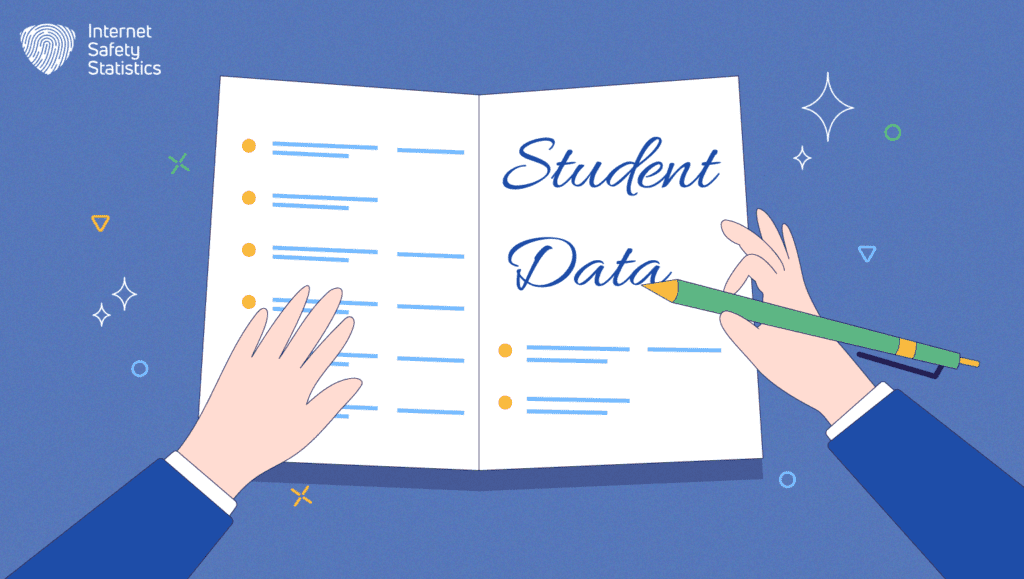
We can divide student data into several categories, as follows:
Personally Identifiable Information (PII)
PII is information that can distinguish or trace an individual’s identity, like their full name in conjunction with their birth date, mother’s maiden name, or a biometric record.
Educational Records
Educational records include grades, transcripts, class lists, student schedules, student identification codes, financial information, and disciplinary records.
Online Activity Data
Information is collected as students interact with various educational applications and services.
Why is Student Data Important?
Student data is essential for a variety of reasons, serving multiple stakeholders within the educational ecosystem:
Educational Development
Student data can provide insight into learning progress and outcomes, helping educators tailor instructions to individual student needs. This information can guide curriculum development and allow for personalised learning experiences.
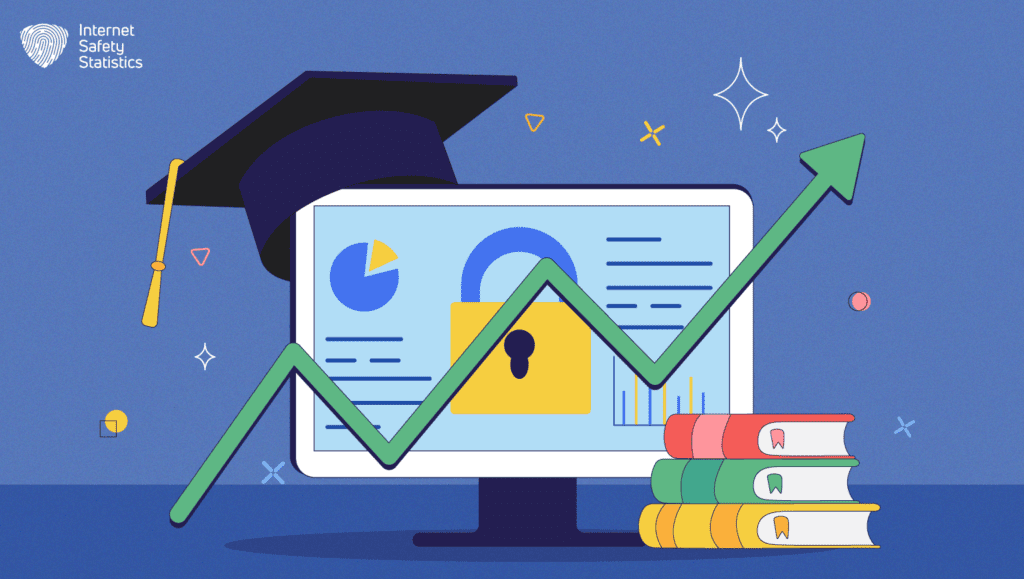
Resource Allocation and School Improvement
By analysing student data, educational institutions can make informed decisions about where to allocate resources effectively. These decisions include identifying which programs may need more funding or support based on student performance and needs. On the other hand, this data will assess the school’s effectiveness and the setting and implementation of improvement plans.
Policy Making
Policymakers rely on aggregated student data to understand the educational landscape, set academic standards, and make informed decisions about educational policy and reforms.
Accountability
Student data helps measure the performance of schools, districts, and teachers. It provides a basis for accountability for educational institutions, ensuring they meet specific standards and improve over time.
Early Intervention
Data can reveal trends that necessitate early intervention, such as attendance issues, learning disabilities, or other barriers to learning. Early detection of such trends can lead to timely support for struggling students.
Progress Tracking and Future Planning
Students and parents can use data to track academic progress over time, set learning goals, and identify improvement areas. The data will help them determine their interests and achievements and be used as guidance to plan the students’ educational and professional futures. The data also can evaluate the student’s readiness to meet workforce demands.
Research
Educational researchers use student data to study learning processes, educational outcomes, and the efficacy of different instructional strategies. This research can lead to new insights and improvements in educational theory and practice.
Safety and Well-Being
Data related to student behaviour and social-emotional well-being can be integral in ensuring the safety of the school environment and the individual welfare of students.
Why Is Protecting Student Data Vital?
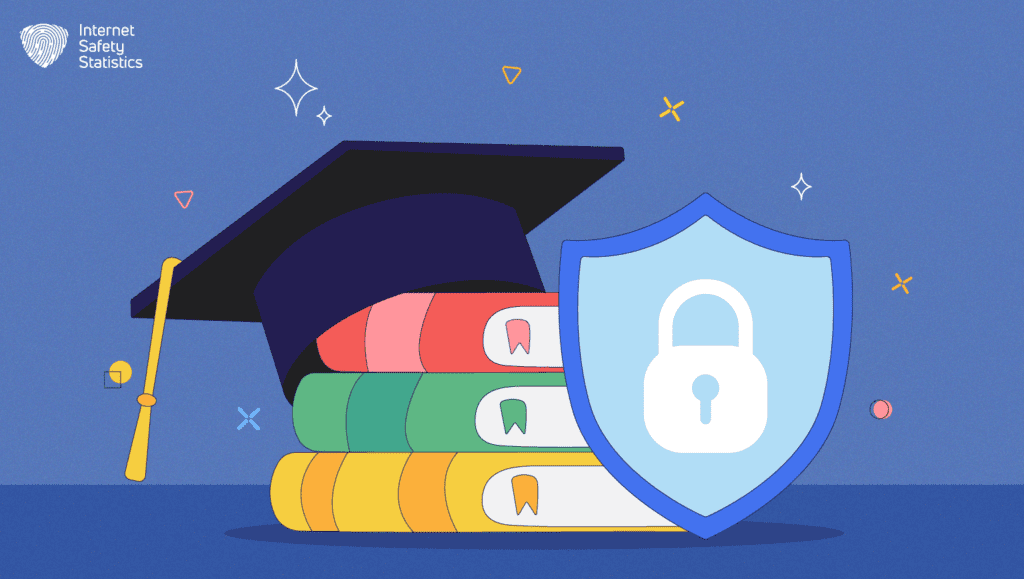
The volume of collected student data dictates its protection. Hence, student data privacy is vital to protect students’ right to privacy, where their personal information remains safeguarded against unauthorised access. Ensuring student data privacy protects it against cyber attackers. Educational institutions are the custodians of student data, and they bear the responsibility to safeguard their students from potential online exploitation.
Exceptions to Student Data Privacy Laws and Agreements
There are various exceptions to student data privacy laws. Such cases include a concern for the student’s well-being; concerned parties may be asked to disclose certain information to appropriate parties. Moreover, accreditation bodies and several government agencies may have access to student data for accountability or regulatory purposes. Research agencies may access student data under strict confidentiality and ethical guidelines.
What Federal Laws the US Have in Place to Protect Student Data?
In the United States, several federal laws have been enacted to protect student data. Schools and educational institutions that depend on federal funding must comply with these laws, and failure to do so can result in the withdrawal of federal funding, among other penalties.
Family Educational Rights and Privacy Act (FERPA)
FERPA is one of the primary federal laws that ensure the privacy of student education records. It gives parents certain rights concerning their children‘s education records requests that transfer to the student, or former student, who reaches the age of 18 or attends a school beyond the high school level. If the parent or eligible student didn’t provide the school with written permission, the school must not release any information from the student’s education record.
Children’s Online Privacy Protection Act (COPPA)
COPPA prevents websites and online services from collecting personal information from children under 13. The Act also gives parents control over what information can be collected from their children online.
Protection of Pupil Rights Amendment (PPRA)
PPRA, also known as the Hatch Amendment, addresses the administration of specific surveys and evaluations to students in schools. The Act demands that schools and contractors obtain written consent before minor students can participate in any survey or study that reveals personal information.
Children’s Internet Protection Act (CIPA)
This Act targets schools and libraries that receive discounts for internal connections or Internet access through the E-rate system. This program makes certain communication services and products more affordable for eligible schools and libraries. CIPA’s protection measures are designed to block or filter Internet access to obscene pictures, child pornography, or harmful to minors.
Health Insurance Portability and Accountability Act (HIPAA)
In some contexts, HIPAA can also apply to educational institutions regarding the privacy of student health records. However, FERPA generally takes precedence over HIPAA regarding student education records at a school.
Educational Technical Assistance Act
Under this Act, the Institute of Education Sciences (IES) has established the National Center for Education Statistics (NCES), which issues guidelines for protecting student data and ensures compliance with FERPA.
What Laws Does the UK Have in Place to Protect Student Data?
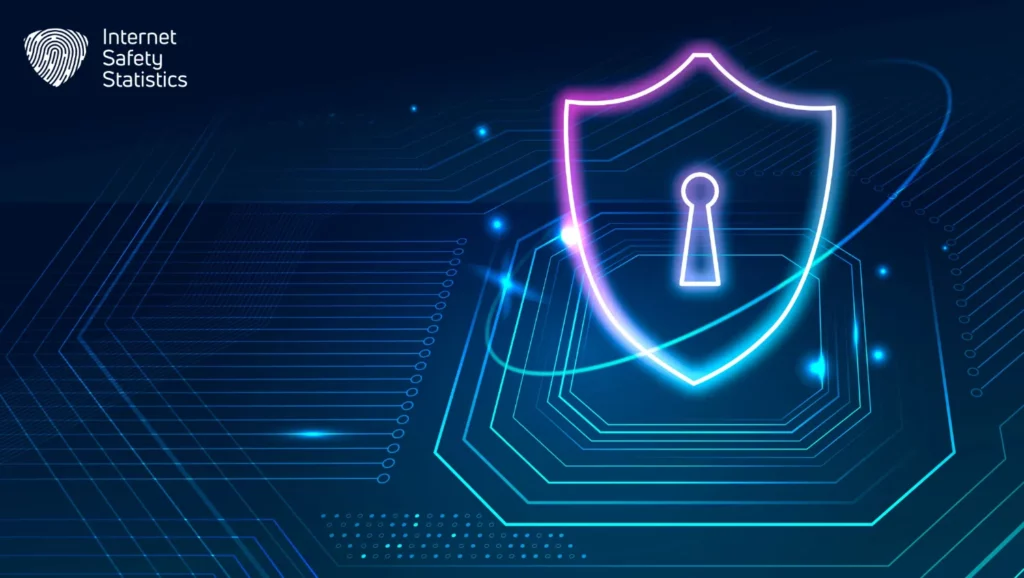
Schools and educational institutions in the UK must adhere to the following laws to protect student data and ensure it is processed lawfully and for a specific purpose. When the goal is fulfilled and the data is no longer required, it should be deleted to safeguard the rights of individuals.
Data Protection Act 2018
This Act is the UK’s implementation of the General Data Protection Regulation (GDPR). It controls how organisations, businesses, or the government use personal information. The Data Protection Act 2018 is the UK’s third generation of data protection law. It updates the previous 1998 Act to make provisions for how personal data is now used and to give individuals more control over their data.
Human Rights Act 1998
Article 8 of the Human Rights Act dictates the right to respect private and family life, home, and correspondence. While not specifically about data protection, it encompasses the right to control the dissemination of personal information, which is fundamental to data privacy.
Children’s Act 1989 and 2004
This Act provides a comprehensive framework for the care and protection of children, which implicitly includes protecting their data. Safeguarding children’s welfare is at its heart, which extends to how their data is treated.
Education Act 1996
Sections of this Act set out the law regarding the use and sharing of information about students in the educational context.
Protection of Freedoms Act 2012
Amongst other things, this Act includes provisions for the protection of biometric information, such as fingerprints, of children in schools.
Additionally, schools must ensure that any third parties they work with who may handle student data, such as educational apps or cloud services, are also compliant with these laws. The consequences for failing to comply with these regulations can be severe, including hefty fines and reputational damage.
Can Cyberattackers Misuse Student Data?
Yes, cyberattackers can and do misuse student data when they gain unauthorised access to it. The potential misuse of student data includes identity theft of the student’s data and committing identity fraud. Students’ personal information, such as their names, social security numbers, dates of birth, and addresses, can be used by cybercriminals to open fraudulent accounts, obtain credit, or even claim government benefits. Moreover, the attacker can use bank details to commit financial fraud and drain bank accounts.
Leaking students’ data makes them susceptible to social engineering attempts and phishing scams through emails to lure the students, their families or staff into disclosing sensitive information. They can also commit academic fraud by altering grades enrolling in classes without paying or stealing intellectual property. The attacker can use sensitive information to blackmail students or their families or even use it to bully or harass the students.
What Steps Can You Take to Ensure the Privacy of Your Data?
As a student in an increasingly connected and digital world, taking proactive steps to ensure the privacy of your data is essential. Here are some strategies you can employ to protect your personal information.

Understand Your Rights
Familiarise yourself with the privacy policies of your educational institution and understand your rights under relevant data protection laws, such as FERPA in the US or GDPR in the EU/UK.
Manage Social Media Settings
Managing your social media settings or audience means controlling who can see and interact with your posts and personal information. Exercise great caution about what you share online.
Use Strong Passwords
Use complex and unique passwords for your different accounts to prevent unauthorised access. We suggest using a password manager, a helpful tool to keep track of your passwords.
Enable Two-Factor Authentication
Where possible, enable 2FA on your accounts. The double authentication process verifies your identity whenever you try to access any of your accounts. This way, you’re adding another layer of tight security.
Be Wary of Phishing Attempts
Learn how to identify phishing emails or messages that trick you into giving away personal information. If you suspect a link might be malicious or the email attachments are from an unknown source, they’re likely to be a phishing attempt.
Secure Your Devices
To secure your device, you must install antivirus agents and ensure it stays updated, along with your operating system and applications. You can use a VPN when accessing public Wi-Fi to protect your data from hackers.
Limit Data Sharing
Only provide your personal information when it’s necessary. Be sceptical if you are asked to share personal details, especially by phone or email.
Check Application Permissions
Practice caution of the applications that require access to your location, camera or contacts.
Monitor Your Digital Footprint
Regularly check what information about you is available online and request the removal of any unwanted or sensitive data.
Encrypt Sensitive Data
If you are storing or transmitting sensitive information, ensure it is encrypted. The encryption makes it much harder for unauthorised individuals to access it.
Educate Yourself
Stay informed about the latest data protection strategies and cybersecurity threats. Participate in any cybersecurity awareness programs your school offers.
Use Institutional Platforms for Academic Work
For submitting assignments and accessing grades, use only the official platforms provided by the educational institution, which are more likely to be secure.
Report Concerns
If you suspect a breach or have concerns about how your data is being handled, report it to your institution’s data protection officer or equivalent authority.
Understand Data Policies of Educational Tools
If you’re using third-party educational tools or services, understand their data policies and how they align with your privacy expectations.
Are There Any Additional Steps to Take to Ensure Student Data Privacy?
Yes, there are additional measures that educational institutions, students, parents, government policymakers and even developers can take to ensure student data privacy further.
Educational Institutions
Schools and educational institutions are the main parties that deal with student data and bear a considerable responsibility to ensure student data privacy. These institutions can regularly train their staff and even students on the best practices of data privacy and the importance of protecting personal information. Furthermore, they can teach their team to deal with any possible data breach. They can also encrypt all sensitive student data and limit who can access it to ensure their legitimate educational or administrative purposes.
An educational institution should collect necessary data only and conduct systematic audits to ensure adherence to privacy policies and identify potential vulnerabilities. If the institution deals with vendors or third parties, they must evaluate and monitor their compliance with privacy standards. Moreover, educational institutions need to engage parents in privacy education to voice any concerns regarding data privacy.
Students and Parents
Students and their parents have an equivalently vital role in protecting student data privacy. They can review all educational forms and enquire why it’s necessary and how it will be protected. Parents and students of age can opt out of sharing student data with third parties. When they need to communicate sensitive information with educational institutions, they must do so through secure channels.
Other protection measures students and parents can implement include ensuring all personal devices used for education purposes are password-protected and have updated antivirus agents. Students should be cautious about what they share online, and parents can monitor their children’s behaviour online. They can also demand the implementation of strong data privacy practices at their child’s school.
Governments and Policy Makers
In addition to developing clear and effective legislation to outline the use of educational data, governments and policymakers can establish supervision bodies to ensure the implementation of data privacy regulations. Policymakers have the responsibility to run public awareness campaigns to educate society about the importance of student data privacy.
Technology Developers
Even technology developers can contribute to protecting student data privacy by building privacy considerations into the development of educational technologies and providing regular updates to prevent any security vulnerabilities in educational software and applications.
Student data privacy is not just a technical requirement; it is an ethical mandate that serves to protect our youth and maintain the integrity of the educational ecosystem. By implementing robust privacy measures and remaining vigilant about potential exceptions, society can ensure the safekeeping of student information, thereby affirming its commitment to nurturing future generations in a secure and respectful digital environment.
